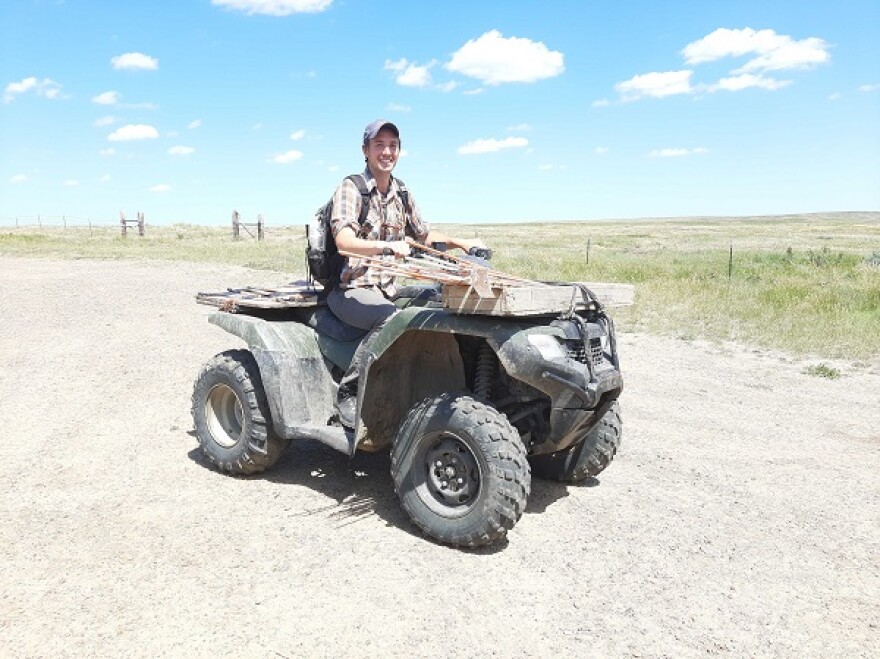Concerns over the environment have increasingly driven people to the streets to protest government inaction. But an ex-Silicon Valley entrepreneur is taking a different approach. He’s digging into his own pockets — and asking others to do the same — to do what he says the federal government can't and won't.
The idea: build a new kind of national park on a scale bigger than Yellowstone. Reporter Nate Hegyi from the Mountain West News Bureau has been reporting on this project with stories coming next week. He joined KUER’s Caroline Ballard to discuss the documentary “The Next Yellowstone.”
This interview has been edited for length and clarity.
Caroline Ballard: You've spent three months working on this — why is it worth all of that time?
Nate Hegyi: This isn't just a story about a new kind of national park in Montana; it's a story about what happens when we lose faith in politicians to protect wild places.
Just take a look here in Utah — the Trump administration recently shrank two national monuments. It's also rolled back Endangered Species Act protections, and there's this feeling that what was once protected forever isn't so protected anymore.
That's not just happening here in the U.S. It's happening all across the globe: governments failing to stop deforestation and wildfires in the Amazon, climate strikes. We've seen Greta Thunberg calling out bureaucrats for failing to save the planet.
The idea with this story is: what if there is another way? One that relies on super rich people, and that's the idea behind environmental philanthropy.

CB: I do imagine that there are a few downsides to rich people trying to save the world. What did you find?
NH: There's two main issues. Really wealthy folks sometimes make their money in dubious ways. And so with American Prairie Reserve, which is the name of this project, two of its board members made money by helping hurt the environment. Critics call this a whitewashing of their reputation — to essentially give money to a cause that's trying to help the environment while you're making money in a way that degrades the environment.
There's also accountability. Groups like this are doing things that normally the government does — like building a new kind of national park or a health program or something else like that. Governments are accountable. If we don't like what they're doing, we can vote them out. Public comment periods — all that kind of stuff.
If we don't like what Bill Gates is doing with the Gates Foundation, we can't vote him out. A lot of critics say that’s not cool. You can't vote the people who run American Prairie out if you don't like the fact that they're building a new kind of national park.
CB: Stories about public lands issues can seem occasionally abstracted and a little complicated. How do you bring it down to our level?
NH: Land stories can be boring, but this isn't just a fight over the land. It's really a fight about us and how we see the land and clashing cultures.
There are some pretty epic conflicts here. I met with this one woman Connie French. She's a local rancher. She looks like someone's artsy cool grandmother. She hates the reserve.
I think our feelings about the American Prairie Reserve can be boiled down to [the fact that] just for them to be successful in their goals, to meet their goals, we can't be here. And that's not OK with us.
Then there's Danny Kinko. He's the chief ecologist for American Prairie. He looks like someone took a hipster from Portland and then dropped him into the middle of the prairie. He's got an earring, a big beard, and he says that this is the last place in North America that we can protect disappearing wild lands.
I like this landscape because it feels wild. It feels far away from the hustle and bustle of civilization. It's relaxing.
There's also rattlesnakes and cow pee and a whole part about how people went crazy on the prairies back in the 19th century, so I promise you it will not be boring. It will be a fun story.
KUER will air Nate Hegyi’s five-part series next week during Morning Edition and All Things Considered.



